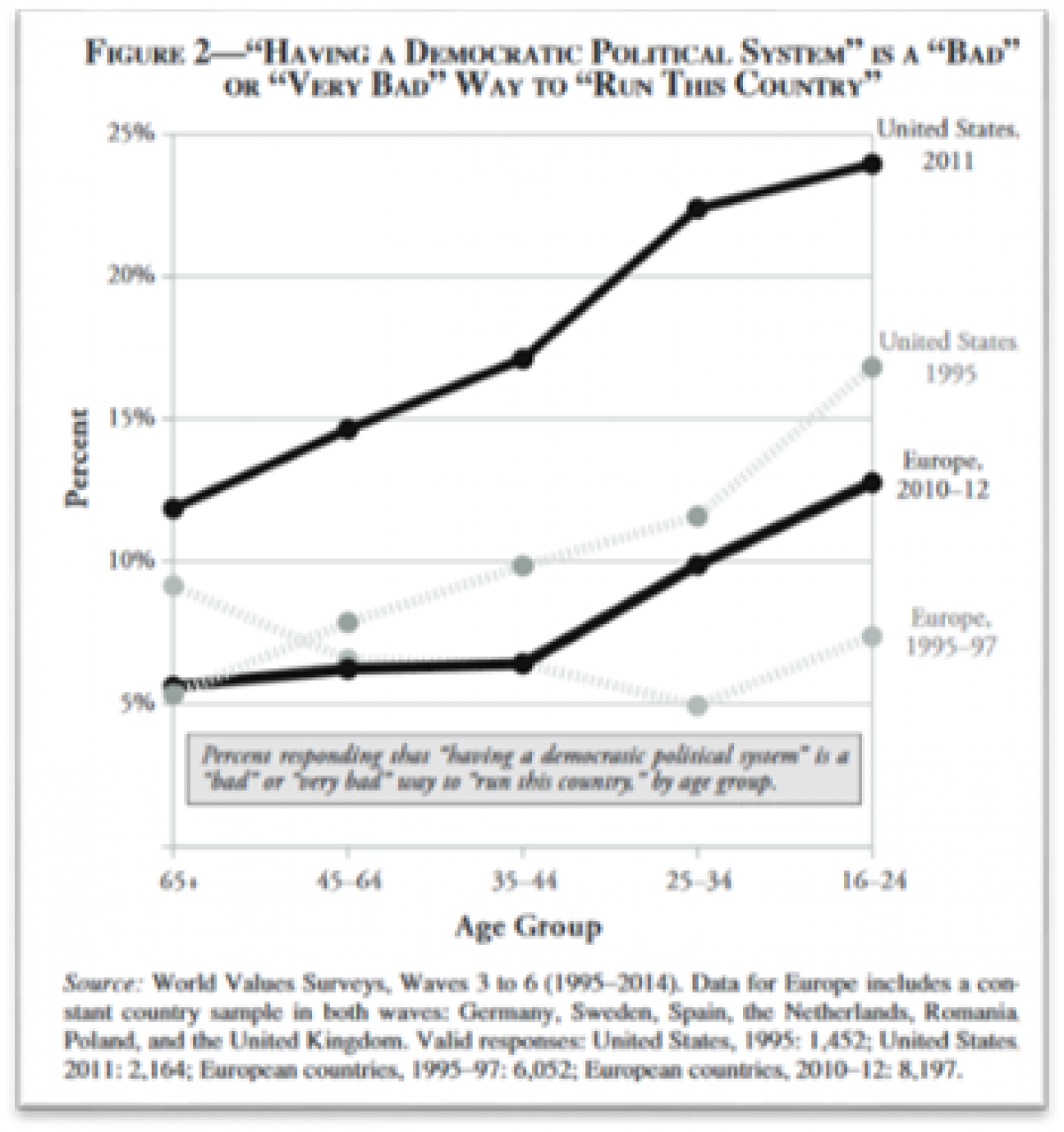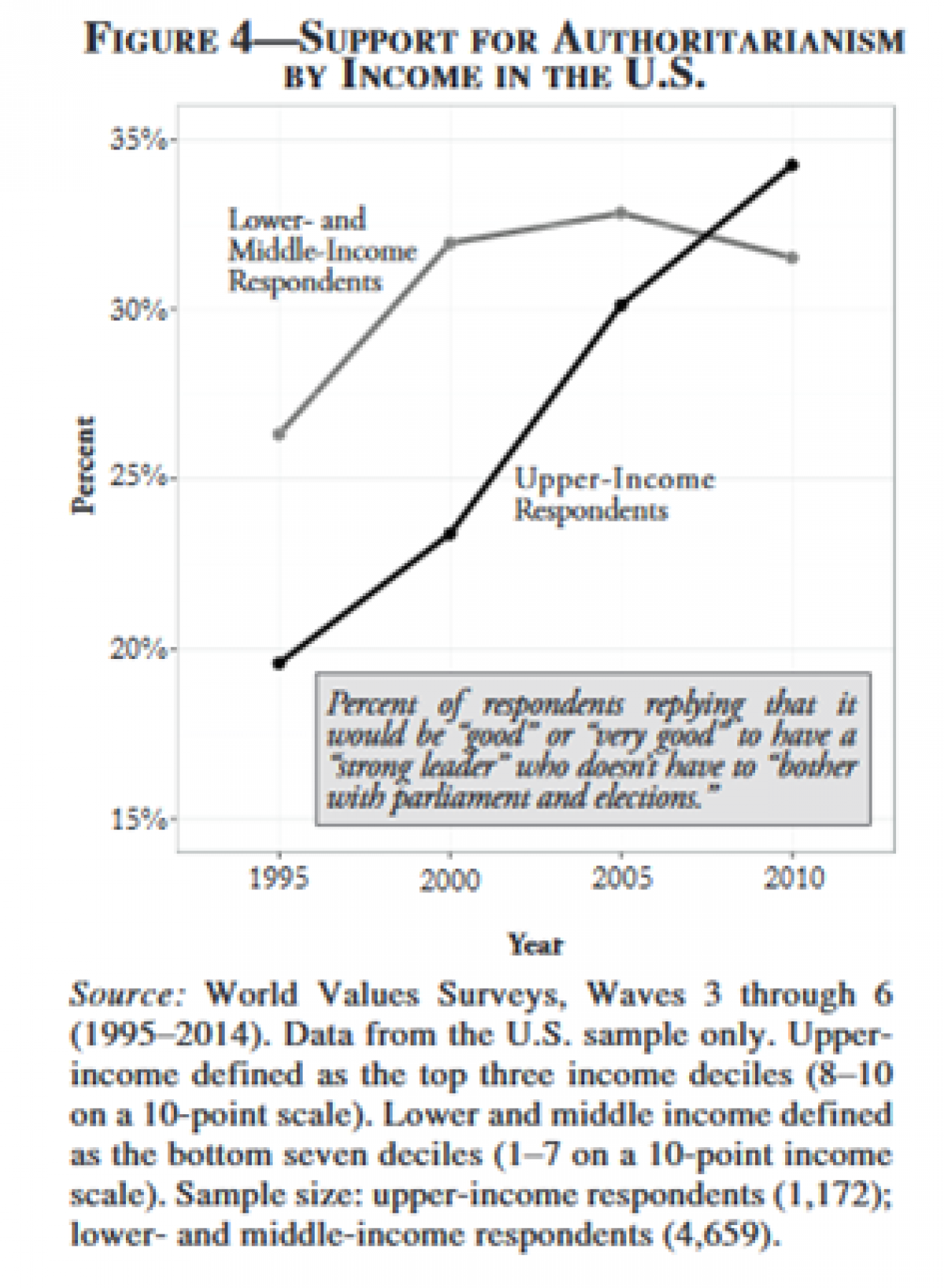
This article was first published on the American Enterprise Institute site.
Liberal democracy in the 21st century has become far more the norm than the exceptional form of rule.
Since the 19th century, liberal democracies have grown in number, at first gradually and fitfully, then exponentially since the 1980s. So dramatic was the global rise in democratic rule by the early 1990s, it was thought to be more or less the inevitable end-state of all remaining autocracies.
Like the Energizer Bunny, once the wave of democracy is set in motion, it just keeps going—or so the theory.
Over this past decade, there's been an actual slide, however, in liberalism globally, recorded by Freedom House. This has been matched by rising uncertainty about the particular value of democratic governance more generally.
Seeing fools' gold in the chaos of the protests that engulfed their campuses, Yale University's Peter Salovey and Jonathan Holloway echoed other college presidents and administrators this year in exclaiming their pride in the student protests, hailing them as this generation's incarnation of civil rights–era protests.
Rather than feel alarmed at the formal political disengagement (lack of voting, political party affiliation, civic associations) that characterizes millennials, scholars have repeatedly urged us to celebrate their norm-challenging efforts. Their protests and lack of confidence in official institutions simply reflect, we're told, the typical fire of youth, while mirroring the wider population's soured sentiment about Congress, the executive branch and even the judiciary.
Yet at what point do the protests and the activism and the formal political disengagement mark more than a tonal shift?
Writing in the Journal of Democracy, Roberto Stefan Foa and Yascha Mounk note that it's difficult to measure when a demonstrated desire to effect political change using the institutions of liberal democracy (such as civil liberties), because disaffected by them, is actually a disavowal of the same. Few scholars or commentators are keen to be the next generational crank and say forthrightly that democracy is in decline.
This time, however, Foa and Mounk enlist "the language of survey research" to demonstrate that the young of this era no longer support democracy per se as prior generations of young citizens have.

Using data from recent World Values Surveys, Foa and Mounk argue that support for democracy as a system of government—what's known as "regime legitimacy"—has significantly declined, as measured by four key indicators.
These include citizens' express support for the system as a whole; the degree to which they support key institutions of liberal democracy, such as civil rights; their willingness to advance their political causes within the existing political system; and their openness to authoritarian alternatives such as military rule.
Not only do fewer than 30 percent of U.S. millennials believe it's essential to live in a country that's governed democratically, compared to 72 percent of those born before WWII, in 2011, 24 percent of those born in the 1980s and after considered democracy to be a "bad" or "very bad" way of running the country.
Among the same cohort of Europeans in 2011, only 13 percent said the similar—itself an increase from the 1990s, when it was 8 percent.
Arguably, these are tenuous because still vague markers. But consider this: The minimal liberal understanding of representative democracy is centered on elections being free and fair. Twenty-six percent of U.S. millennials say that it is "unimportant" for a people in a democracy "to choose their leaders in free elections."
This anchors the more concerning fact that the share of U.S. citizens who believe that having a "strong leader" who doesn't have to "bother with parliaments and elections" is a better way to proceed has risen to 32 percent from 24 percent in 1995; that 49 percent now approve of "having experts, not government, make decisions according to what they think is best for the country"; and that today, one in six of the survey respondents agrees that it would be a good or very good thing for the army to rule.
(Notably, the proportion in favor of military rule has risen in most mature democracies, including Germany, Sweden and the United Kingdom.)

And, Foa and Mounk remark, such undemocratic sentiments have risen especially among the wealthy. Rising support for illiberal politics is driven by the young, wealthy and privileged maybe more even than by the disempowered, middle-aged and underemployed.
What these World Values Surveys findings show is that democracy's durability is less inherent and inevitable than popular assumption would have it. Democratic citizens can become open to authoritarian alternatives; they can even be willing to jettison institutions and norms that have traditionally been regarded as central components of democracy.
Liberal democracy is not inevitable. Absent a serious discussion about the nonexistent priority given civic education (both broadly and narrowly understood) across the West in recent decades, it's an idea even more at risk to the demagogues, autocrats and extreme nationalists that appear increasingly to populate our civic spaces.
Rebecca Burgess manages the Program on American Citizenship at the American Enterprise Institute.
Uncommon Knowledge
Newsweek is committed to challenging conventional wisdom and finding connections in the search for common ground.
Newsweek is committed to challenging conventional wisdom and finding connections in the search for common ground.
About the writer
To read how Newsweek uses AI as a newsroom tool, Click here.








